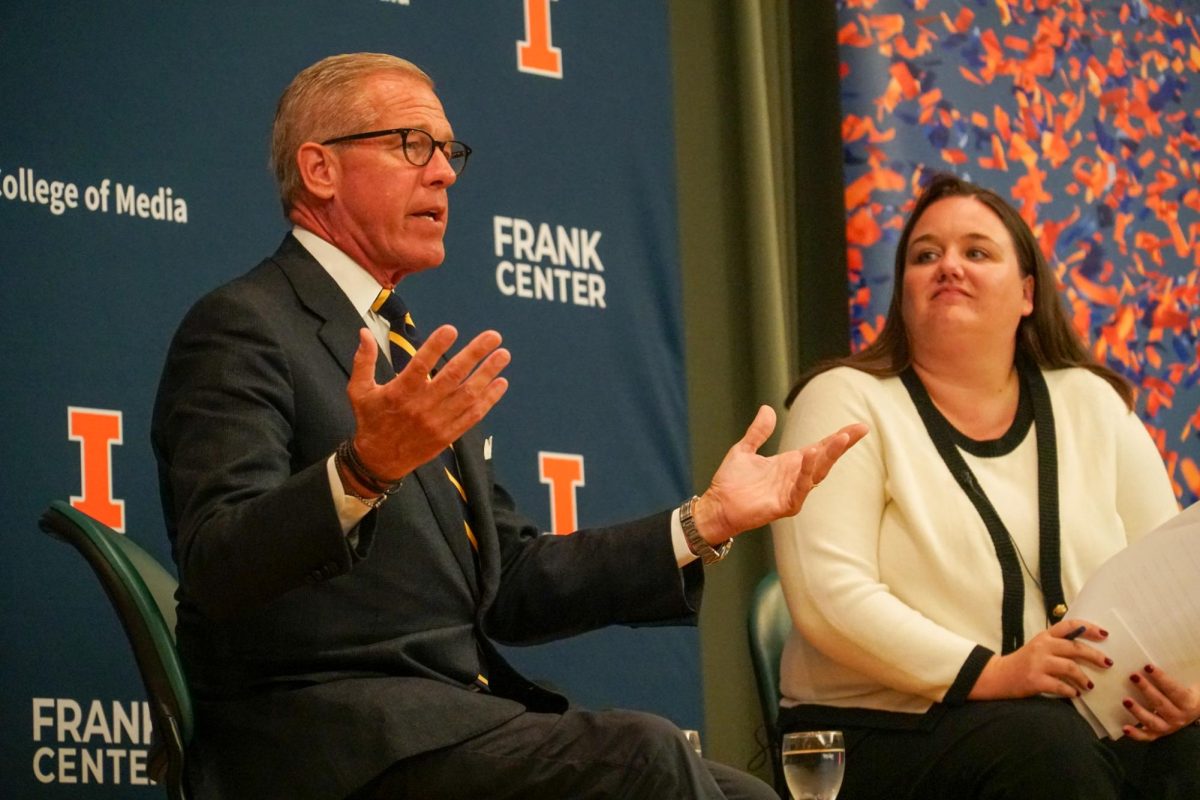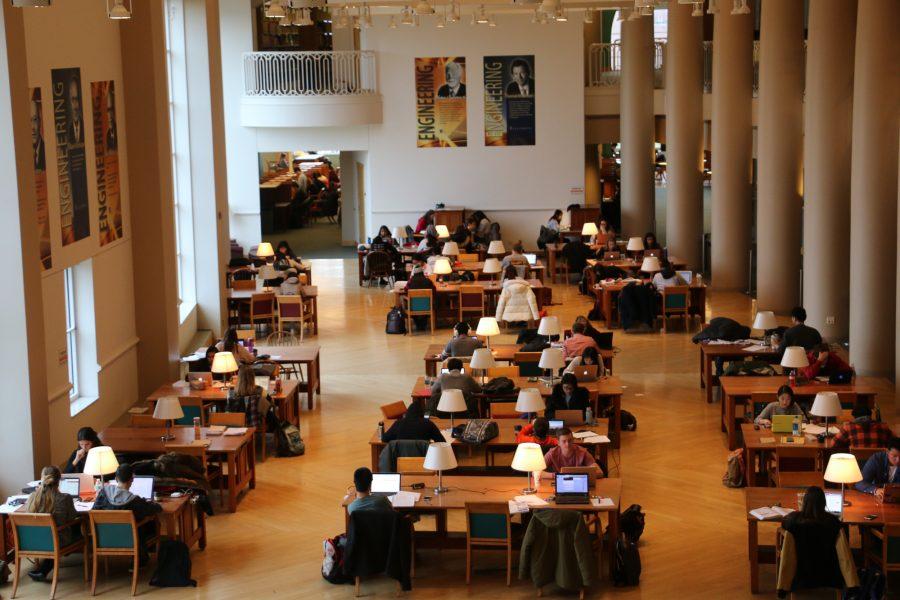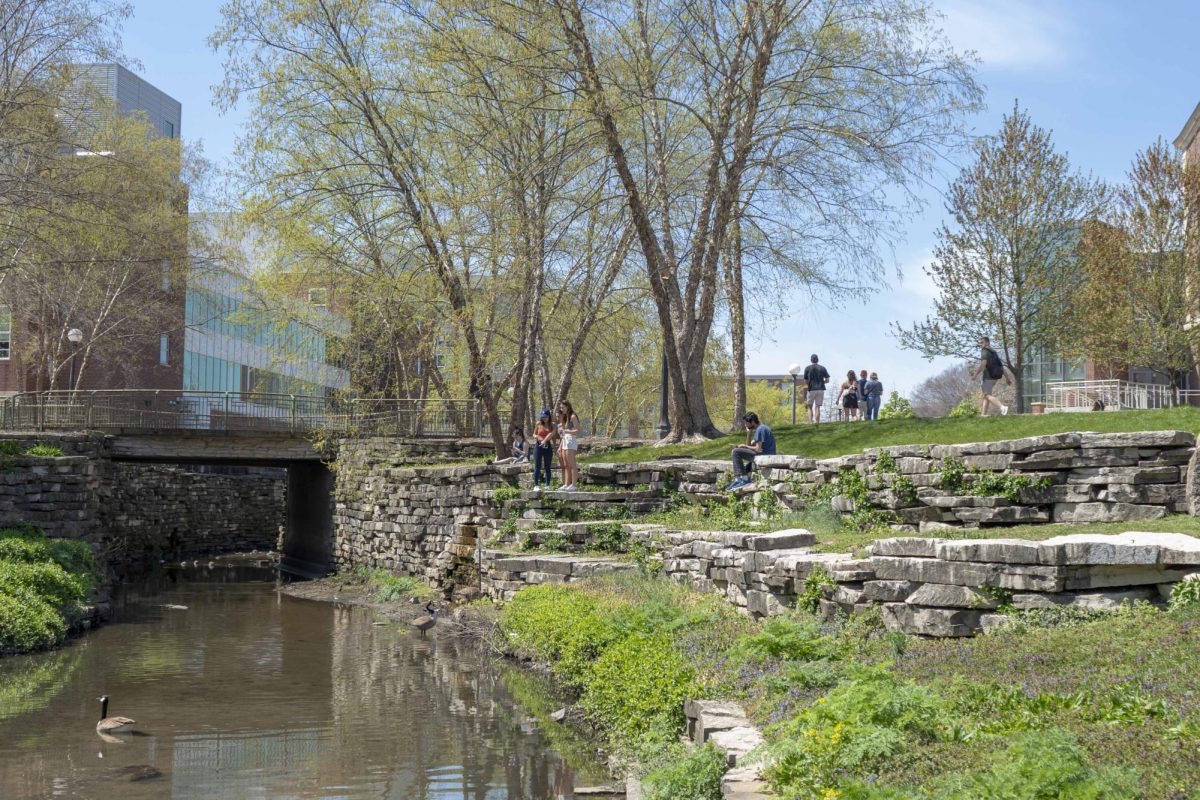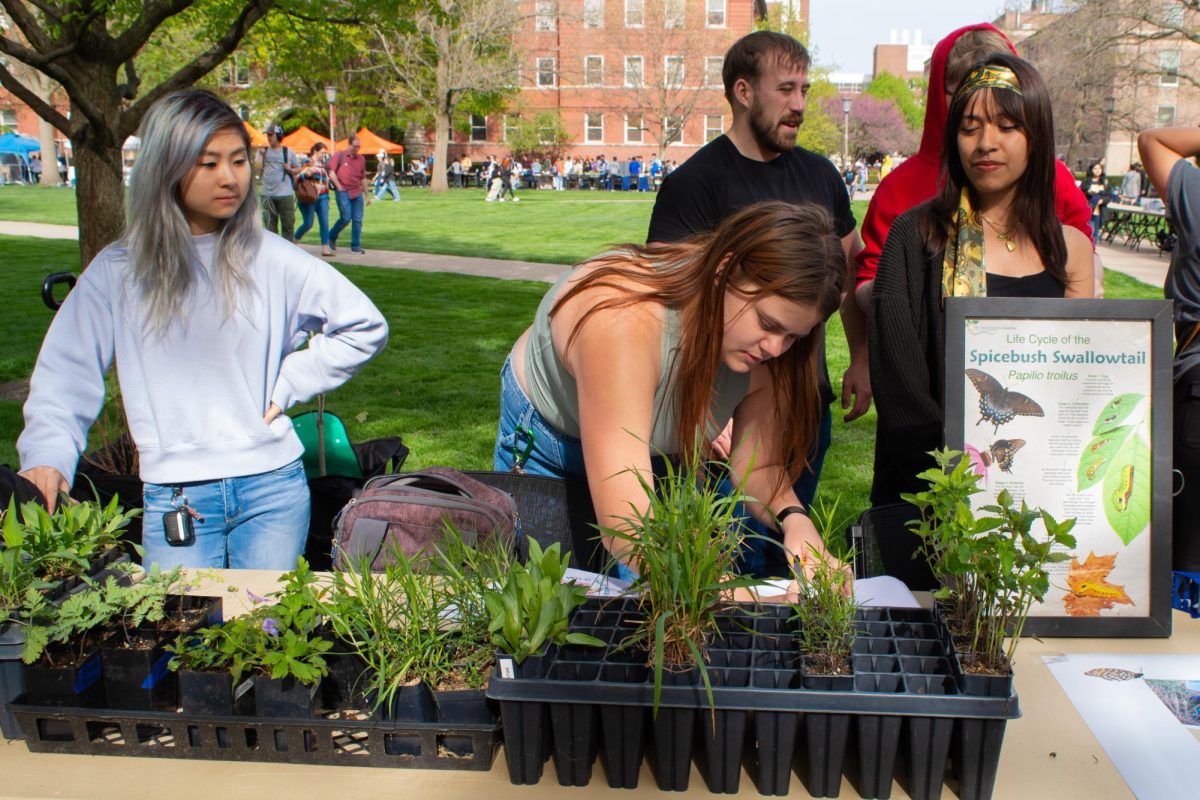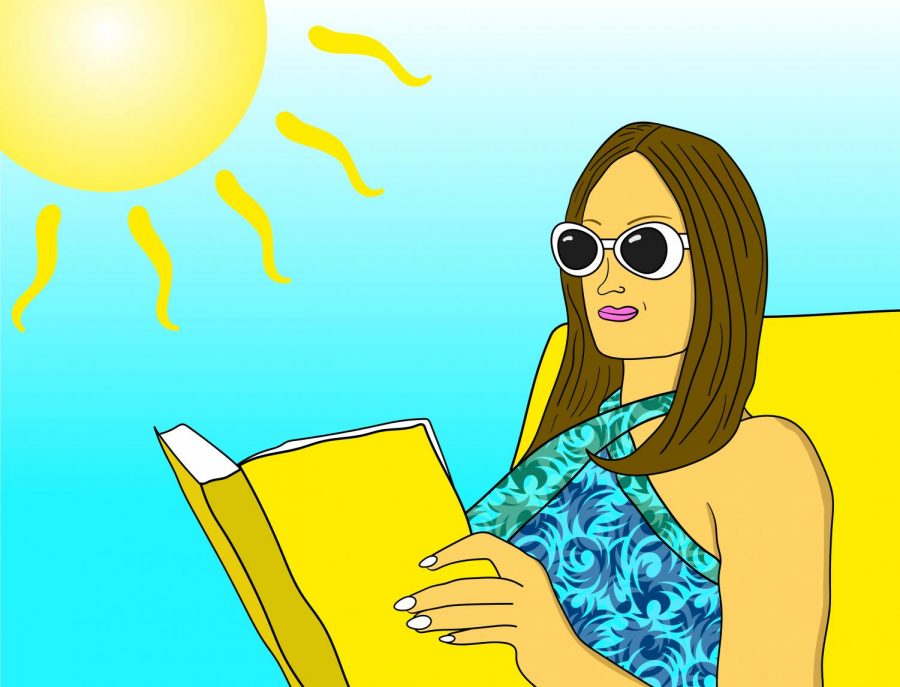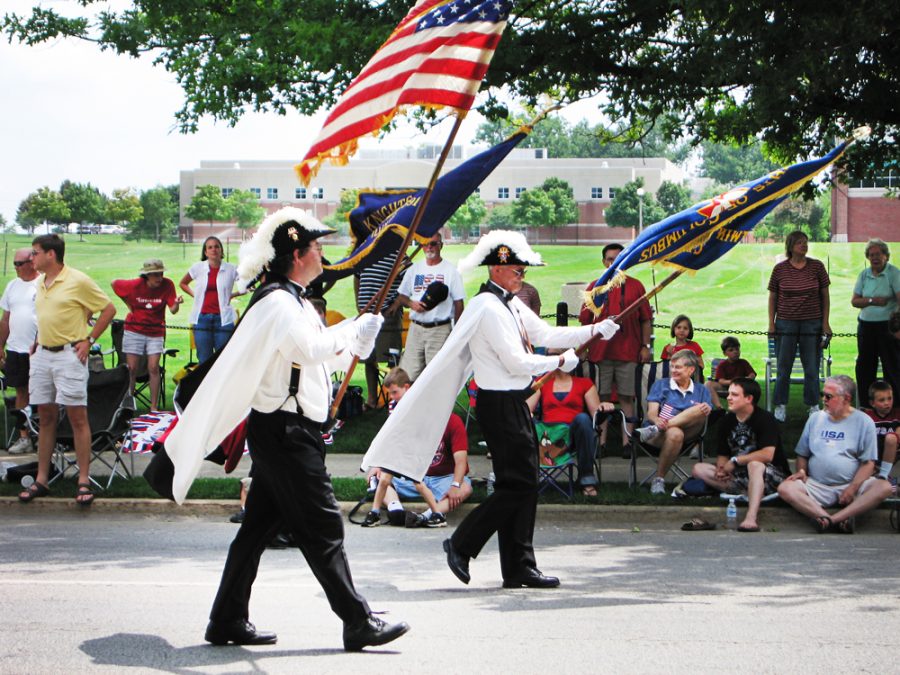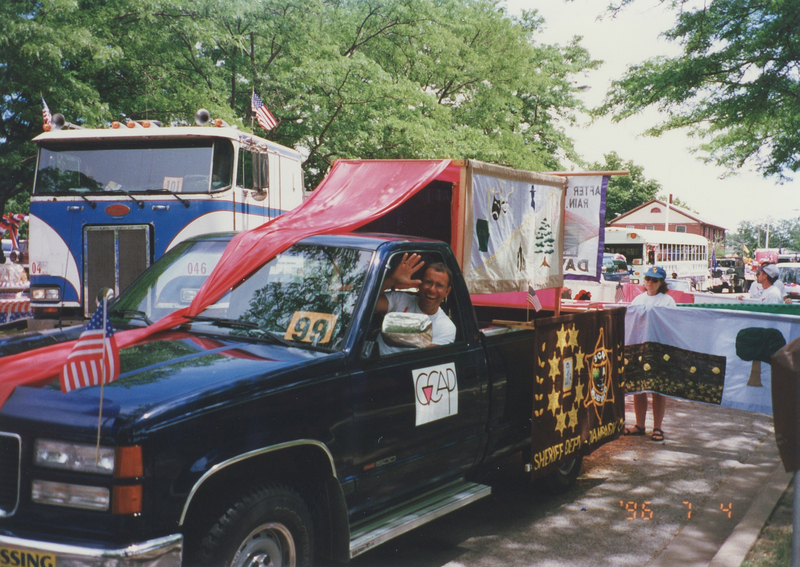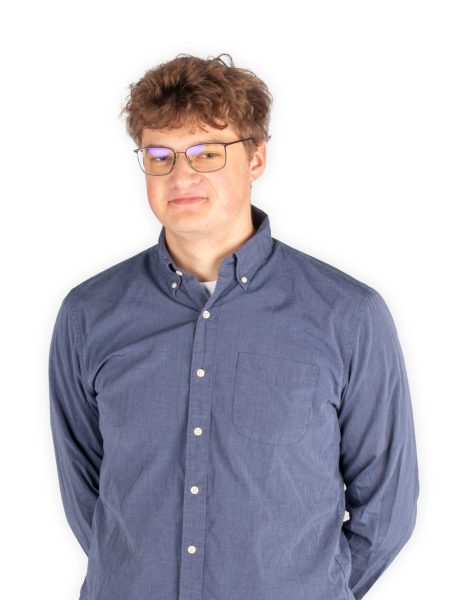Brian Williams, former MSNBC news anchor, came to the University to discuss the highlights of his career and give advice to aspiring student journalists on Monday.
Williams served as a broadcast news anchor for 40 years covering political elections, conflicts overseas and natural disasters. He is well known for recapping the 2016 political elections in a nightly news wrap-up show called “The 11th Hour With Brian Williams,” including the pivotal moments in Donald Trump’s campaign.
Colleen King, director of the Richard and Leslie Frank Center for Leadership and Innovation in Media, invited Williams on campus in honor of the grand opening of the renovation of the Frank Newsroom at Richmond Studio.
“I had worked with Brian Williams,” King said. “I know him well and I thought it would be a wonderful opportunity for him to meet students and vice versa.”
King had worked closely with Williams as the executive producer of “The 11th Hour.” The show recapped the day’s political news starting at 11 p.m. ET every night.
Get The Daily Illini in your inbox!
“I first met Brian in 2016 when we worked on some special coverage of the 2016 presidential election,” King said. “I was asked to join him for what was supposed to be a temporary short-term show called ‘The 11th Hour.’”
Eight years later, the show has continued to recap political events with Stephanie Ruhle serving as its new anchor after Williams’s departure in 2021.
“It turned into such a huge success that the show continued,” King said. “It expanded to a full hour five nights a week and it is a show that is still on the air today.”
King served as the event’s interviewer, asking Williams questions about the beginning of his career and advice to future journalists.
Under the lights of the Beckman Institute’s stage, Williams recounted how influential cable news was to his childhood.
“I grew up in a news household,” Williams recounted to the audience. “We didn’t eat dinner, period, until Walter Cronkite finished his broadcast. I was that kid who ran to my parents the night RFK was shot and MLK and that was my life. I wanted to know things first.”
In 1981, Williams began his broadcast career in Pittsburgh, Kansas.
“My first story was about an environmental crisis that ended up closing the town of Picher, Oklahoma,” Williams said.
The town had a history of lead mining, according to Williams, which created chat piles of lead and would later contaminate the town’s water supply. In the 2000s, Picher was evacuated and in 2009 was deemed uninhabitable.
“I was doing a story on the lead content,” Williams said. “The fact that these mines hadn’t been capped. Children were falling down these open holes. You never forget your first story on television.”
Despite being in front of a camera for many years, Williams described the challenges of reporting and interviewing, especially being an introvert.
“Reporters are introverts because we’re not forced to be extroverted,” Williams said. “It’s part of why I had a hard time approaching people at tough times in their lives for interviews.”
Williams said it was not easy speaking live on camera and that he found it challenging. However, his second news director in Washington, D.C., Betty Endicott, gave him advice to overcome this.
“Betty said, ‘Picture the people you have loved the most, alive or dead,’” Williams said. “‘It can be a dear departed grandparent, a friend of yours, a contemporary, one of your neighbors, the people you go on vacation with, just talk to a room with them. Just tell them what happened to them.’”
When King asked Williams for writing advice, she added Williams had a history of strongly disliking certain words used in writing.
“I always say to students, ‘The word “stated” is in every Wikipedia profile in the world because it’s a sheep word for a bad writer,’” Williams said as the audience burst into laughter.
Williams went on to give writing advice to a room of many aspiring journalists.
“It’s okay to say he or she ‘said’ and say it a million times in a piece,” Williams said. “That’s how we talk, no one ‘stated.’ Stated is a cheap excuse for a word.”
King concluded the panel with a question proposed by a student wanting to know what it takes to become a journalist.
“Curiosity,” Williams said. “Curiosity will get you everywhere. It’s a great quality to have. I don’t think journalists can survive without curiosity.”
Anne-Louise Anstey, sophomore in LAS and FAA, described her excitement at seeing Williams onstage.
“I’ve been a fan of Mr. Williams for quite a few years now, kind of ever since he’s had his ’11th-hour’ show,” Anstey said. “I’ve really enjoyed his programming and his guests and the way he approaches things, so I was excited when I heard about the event.”
Holly Rushakoff, director of communications at the College of Media, expressed her gratitude to the Frank Center and King for creating opportunities for professional journalists to come on campus.
“I also love Colleen King,” Rushakoff said. “She’s my colleague, but I think she does such a good job at organizing these kinds of events and getting people to come here, like Steve Kornacki came last spring.”
Rushakoff emphasized the significance of these influential figures in the media sharing their expertise on campus.
“We’re just very lucky, if you’re interested in media, to have these kinds of high-caliber, high-quality media industry leaders coming to campus to share their insights.”
King said bringing professional journalists on campus is what the Frank Center was made for.
“I think it’s a great opportunity for our students to meet a journalist with a household name here on campus without having to go find an internship in New York or Washington or LA or Chicago,” King said. “I think opportunities like this are what the Frank Center was designed to provide for students and media and students across campus.”






